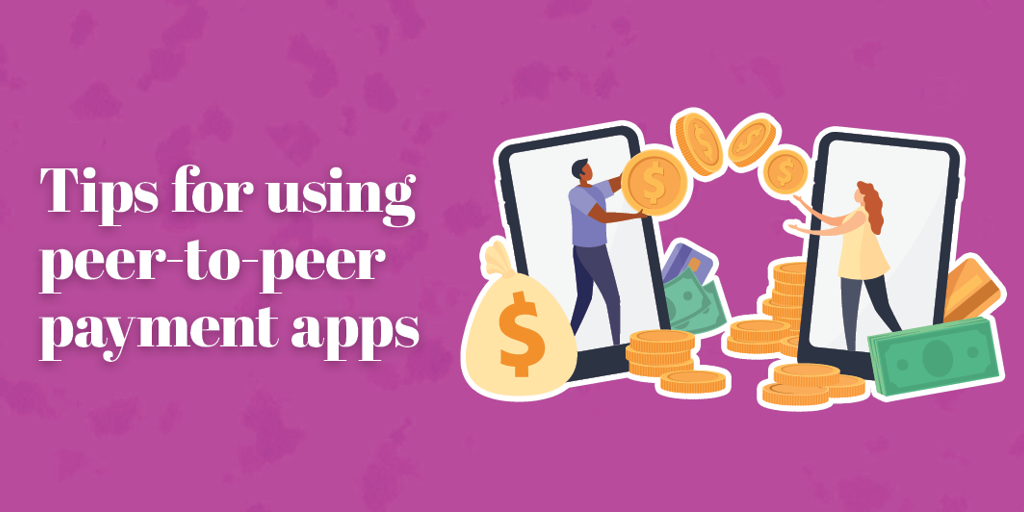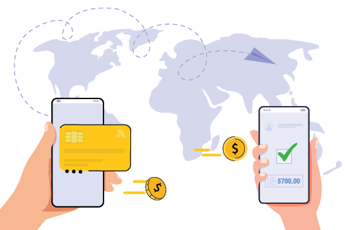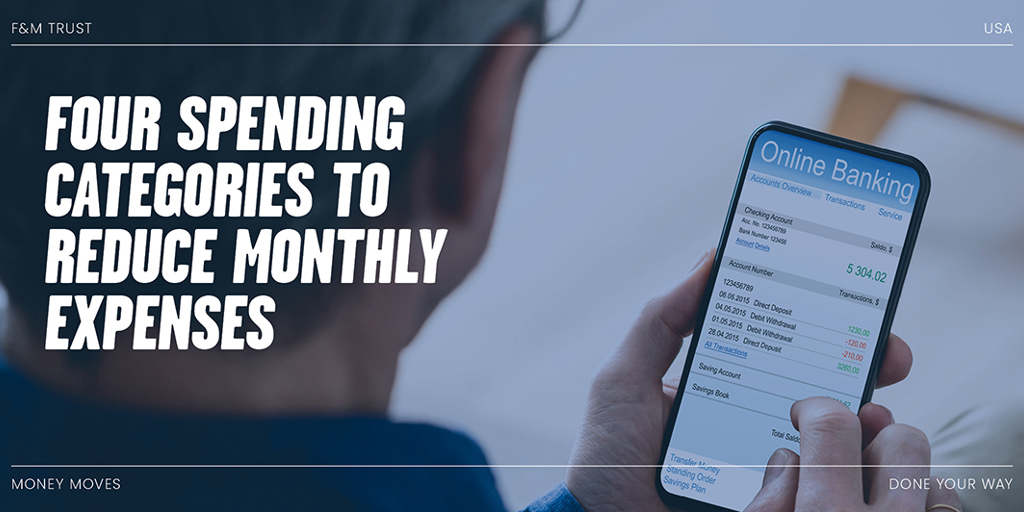


Tips for using peer-to-peer payment apps
Whether you’re splitting the bill at a restaurant with friends, paying back your parents, or buying snacks at a sports event, it’s hard to beat the convenience of peer-to-peer payment apps like Venmo, Zelle, Google Pay, Cash App, and PayPal.
With these apps, you don’t have to worry about finding an ATM or always carrying cash. Instead, P2P apps are typically linked to your bank account and let you send or receive money instantly.
While there is no denying the speed and convenience of P2P apps, they aren’t risk-free, so make sure you’re aware of potential pitfalls before you hit Send.
Once It’s Sent, It’s Gone
When you use peer-to-peer payments, all you need is someone’s username, email address, or phone number. You don’t know their account details, and they don’t know yours. Transfers are typically free and fast.
But before you fire off money, make sure you’re sending it to someone you know and trust. Because once that money is gone, it’s typically gone for good. This means that if someone stiffs you on a purchase – like concert tickets that turn out to be fake or payment for a product that never arrives – there isn’t much you can do to get your money back. This is true even if you use an app like Zelle, which is commonly integrated with banks, because if you send the money, you’ve technically “authorized” the transaction.
Exercise major caution before using peer-to-peer payments with people you don’t know and remember it’s best to stick with friends and family.
Check Twice, Send Once
Even if you’re sending payment to someone you know, it’s still easy to mess up. Are they HenrySmith21 or HenrySmith22? Double-check you’ve got the right person before you send a payment. You could send a small amount, like $1, to verify before following up with a larger payment. Or, if you’re sending payment for the first time, some apps ask for the last four-digits of a person’s phone number.
Be extra careful with requested payments. Peer-to-peer apps are an easy target for scammers. Double-check or triple-check before paying requested amounts even from people you know. Scammers can easily impersonate someone from your social feed by changing their username and profile picture. Reach out to them outside the app to confirm that the request is legit.
Know Your Fees
There is no cost to send or receive money with many peer-to-peer apps, but most have fees for added services. For instance, most offer free balance transfer to your linked bank account within one to three days but include a surcharge for instant transfer. This amount varies depending on the app.
Peer-to-peer apps usually draw from the balance in your account or your linked bank account. But if you use a credit card to make P2P payments instead, you’ll be hit with a transaction fee, too. It might seem small, but those extra amounts add up over time.
Use Common Sense
With any payments that include social posts – like emoji-filled Venmo notes – act maturely and be smart about what you post. Even posts set to private can be used in legal disputes.
Make sure your P2P apps have password or other protections, like Face ID or two-factor authentication, so someone can’t pick up or “borrow” your phone and use the app to siphon money from your account.
It’s best to keep your running balance low. Peer-to-peer apps aren’t a great place to store or save money. Don’t view them as a replacement for traditional bank accounts. Think of them instead as a convenient supplement, and be careful about how and when you use them.
Matt Sheibley is community office manager at F&M Trust’s Boiling Springs and Carlisle Crossing locations.
Recent Articles
Join our e-newsletter
Sign up for our e-newsletter to get new content each month.






















